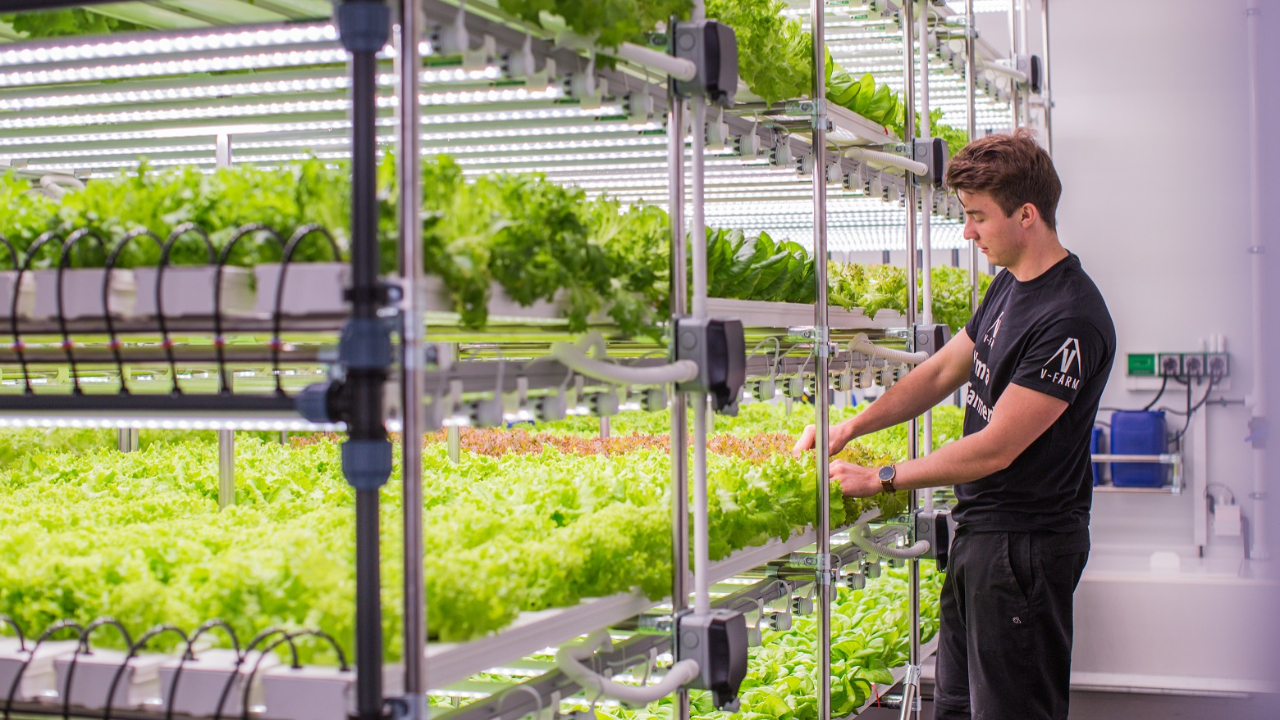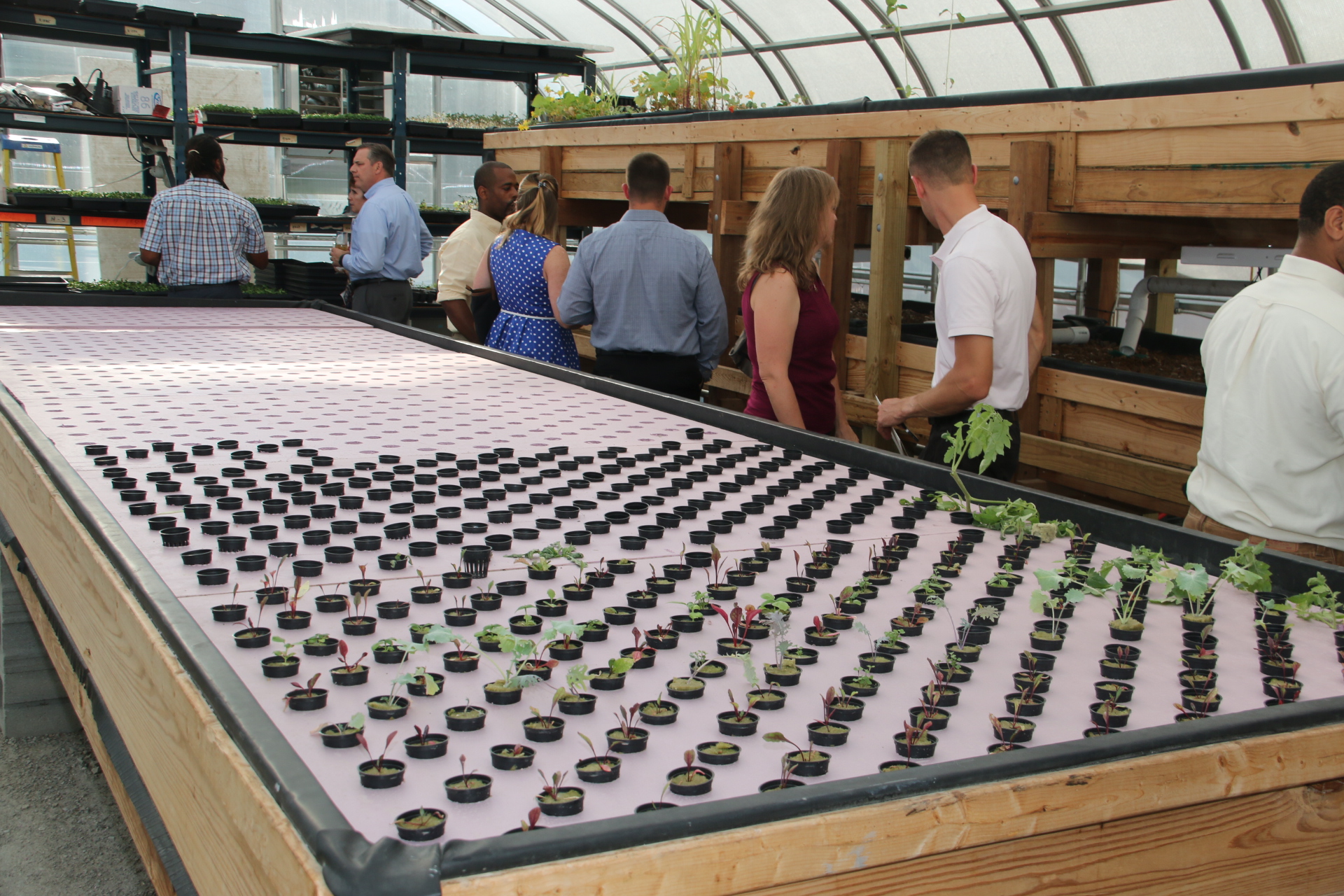Hydroponics edinburgh – Delve into the world of hydroponics in Edinburgh, where innovative farming techniques meet urban landscapes, offering a sustainable and efficient solution to food production.
From its humble beginnings to the cutting-edge technologies employed today, hydroponics has transformed the way we grow crops in the heart of the city.
Introduction to Hydroponics in Edinburgh

Hydroponics is a method of growing plants without soil, using mineral nutrient solutions in water. It offers several benefits over traditional soil-based gardening, including increased crop yields, reduced water consumption, and the ability to grow plants in controlled environments.
A Brief History of Hydroponics in Edinburgh
The history of hydroponics in Edinburgh dates back to the early 19th century. In 1842, Scottish botanist Robert Jameson published a paper describing his experiments with growing plants in nutrient solutions. In the early 20th century, Edinburgh became a center for hydroponic research, with the University of Edinburgh establishing one of the first hydroponic research stations in the world.
If you’re interested in learning more about hydroponics in Edinburgh, you might also want to explore aquaponics in Minnesota. Aquaponics MN is a great resource for anyone interested in this sustainable and efficient way of growing food. You can find information on everything from setting up your own aquaponics system to troubleshooting common problems.
Once you’ve learned more about aquaponics, be sure to come back and learn more about hydroponics in Edinburgh.
Hydroponic Systems and Technologies

In Edinburgh, various hydroponic systems and technologies are employed to cultivate plants without soil. These systems provide controlled environments that optimize plant growth and yield. Let’s explore the different types of hydroponic systems and their respective advantages and disadvantages.
Nutrient Film Technique (NFT)
- In NFT systems, a thin film of nutrient-rich water flows continuously over the roots of plants suspended in channels or troughs.
- Advantages: Efficient water and nutrient utilization, rapid plant growth, and easy automation.
- Disadvantages: Requires precise control of water flow and nutrient concentration, and can be susceptible to root rot if not managed properly.
Deep Water Culture (DWC)
- DWC systems immerse the roots of plants in a constantly aerated nutrient solution.
- Advantages: Provides excellent oxygenation for roots, promotes vigorous plant growth, and simplifies nutrient management.
- Disadvantages: Can be prone to root diseases if aeration is insufficient, and requires careful monitoring of nutrient levels.
Ebb and Flow (Flood and Drain)
- Ebb and flow systems periodically flood the growing medium with nutrient solution and then drain it, allowing for both water and oxygen absorption by the roots.
- Advantages: Versatile and suitable for various growing media, promotes root development, and reduces the risk of root rot.
- Disadvantages: Requires a reliable timer and pump system, and can be less efficient with water and nutrients compared to other systems.
Aeroponics
- Aeroponic systems suspend plant roots in the air and spray them with a fine mist of nutrient-rich water.
- Advantages: Provides maximum oxygenation for roots, promotes rapid plant growth, and eliminates the need for growing media.
- Disadvantages: Requires specialized equipment and precise control of misting frequency and nutrient concentration, and can be susceptible to root desiccation if misting is interrupted.
Crops Grown in Hydroponic Systems in Edinburgh
Hydroponics in Edinburgh offers a controlled environment for growing a wide range of crops. Factors such as light intensity, nutrient availability, and water quality influence crop selection. Here are the most commonly grown crops in hydroponic systems in Edinburgh:
- Leafy greens: Lettuce, spinach, kale, and arugula are popular choices due to their rapid growth and high nutritional value.
- Herbs: Basil, mint, cilantro, and thyme are grown for their aromatic flavors and culinary uses.
- Fruits: Strawberries, tomatoes, and cucumbers can be successfully cultivated in hydroponic systems, providing fresh and flavorful produce.
- Microgreens: These tiny seedlings of various vegetables and herbs are packed with nutrients and can be harvested within a few weeks.
Successful hydroponic crop production in Edinburgh includes:
- Vertical Farm Edinburgh: This innovative indoor farm grows a variety of leafy greens and herbs using vertical hydroponic systems.
- Lochend Foods: A community-based hydroponic project that provides fresh produce to local residents.
- Edinburgh Napier University: Research and development in hydroponic technologies, including the use of LED lighting and nutrient optimization.
Economic and Environmental Impact of Hydroponics in Edinburgh
Hydroponics has a significant economic and environmental impact in Edinburgh. It provides economic benefits to the local community and helps reduce the environmental footprint of agriculture.
Economic Benefits
- Job creation:Hydroponic systems require skilled labor for installation, maintenance, and harvesting, creating employment opportunities in Edinburgh.
- Increased crop yields:Hydroponics allows for higher crop yields per square meter compared to traditional agriculture, leading to increased profits for farmers.
- Reduced transportation costs:Hydroponic farms can be located within urban areas, reducing transportation costs and emissions associated with importing produce from distant locations.
Environmental Impact
Hydroponic systems have several environmental benefits:
- Water conservation:Hydroponics uses 90% less water than traditional agriculture, making it a sustainable option in water-scarce regions.
- Reduced pesticide use:The controlled environment of hydroponic systems minimizes the need for pesticides, promoting organic and sustainable farming practices.
- Vertical farming:Hydroponic systems can be installed vertically, maximizing space utilization and reducing land requirements for agriculture.
Sustainability Comparison, Hydroponics edinburgh
Compared to traditional agriculture, hydroponics offers significant sustainability advantages:
- Higher water efficiency:Hydroponic systems use significantly less water, reducing the strain on water resources.
- Lower carbon footprint:Vertical farming and reduced transportation emissions contribute to a lower carbon footprint for hydroponics.
- Reduced soil degradation:Hydroponics does not require soil, preserving soil health and preventing soil erosion.
Education and Research in Hydroponics in Edinburgh: Hydroponics Edinburgh
Edinburgh has emerged as a hub for hydroponic education and research. Universities and research institutions in the city play a pivotal role in advancing knowledge and innovation in this field.
Educational Programs
Several universities in Edinburgh offer educational programs related to hydroponics. These programs provide students with a comprehensive understanding of the principles, technologies, and applications of hydroponics. Courses cover topics such as plant physiology, nutrient management, and environmental control.
Research Initiatives
Research institutions in Edinburgh are actively engaged in hydroponic research. The James Hutton Institute, for example, conducts research on optimizing hydroponic systems for different crops. The University of Edinburgh’s Institute of Biological, Environmental and Rural Sciences focuses on developing sustainable hydroponic technologies.
Future Prospects
The future of hydroponics in Edinburgh is promising. With continued investment in education and research, the city is well-positioned to become a global leader in this field. Hydroponics has the potential to address food security challenges and contribute to the development of sustainable agriculture practices.
Final Review
As hydroponics continues to evolve in Edinburgh, it presents exciting opportunities for urban farming, sustainable agriculture, and community engagement. The future holds endless possibilities for this innovative approach to food production, ensuring a greener and more resilient food system for the city.
FAQ Section
What are the benefits of hydroponics in Edinburgh?
Hydroponics offers numerous benefits, including increased crop yields, water conservation, reduced environmental impact, and year-round production.
What types of crops are commonly grown using hydroponics in Edinburgh?
A wide variety of crops are grown using hydroponics in Edinburgh, including leafy greens, herbs, tomatoes, cucumbers, and strawberries.
How does hydroponics contribute to the local economy?
Hydroponics supports local businesses, creates jobs, and provides fresh, locally grown produce to the community.
